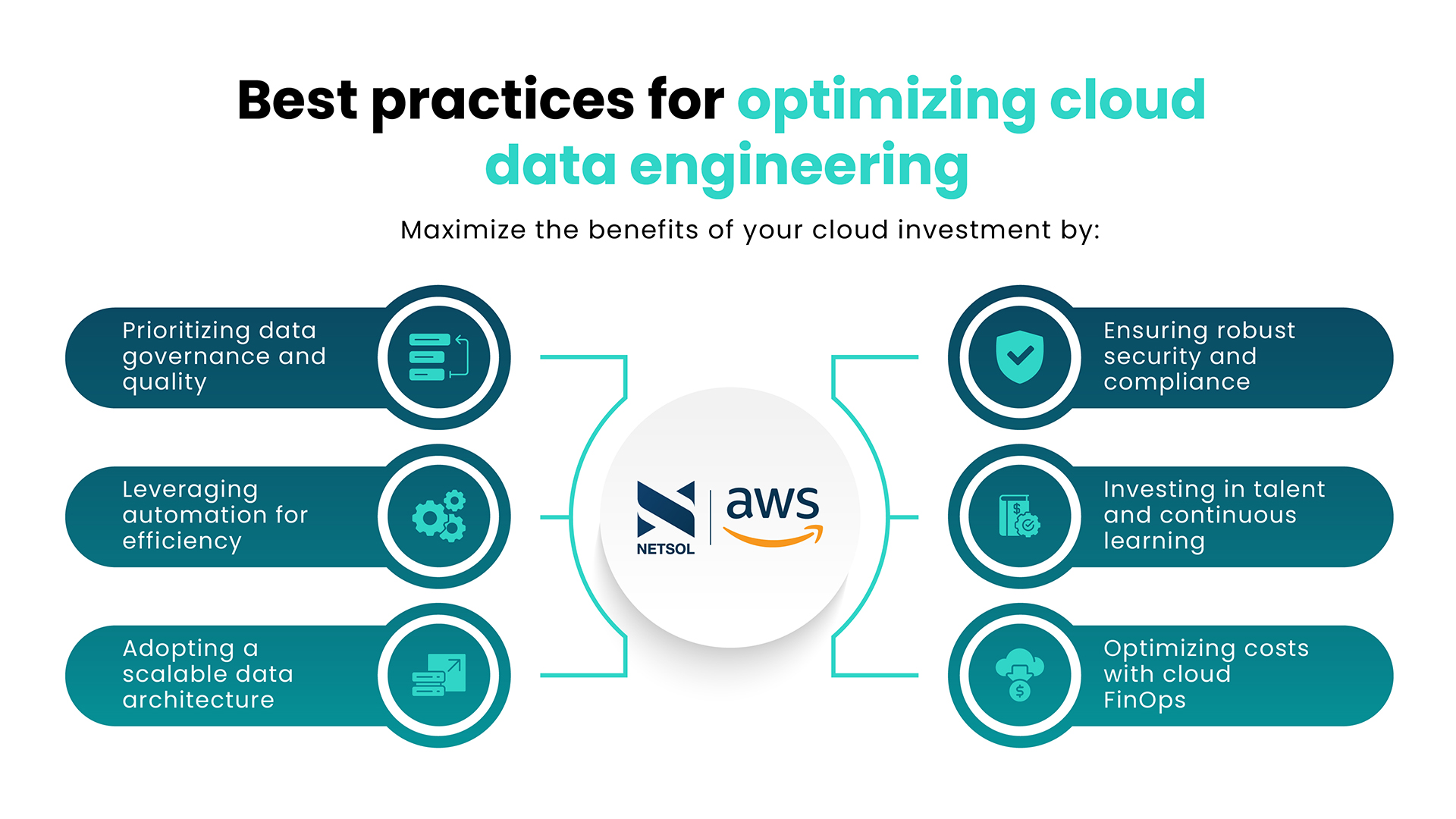What is cloud data engineering?
Understanding the basics before jumping to learn how to optimize the cloud is vital.
– IDC
Best practices for optimizing cloud data engineering

Prioritizing data governance and quality
– Gartner
Leveraging automation for efficiency
Adopting a scalable data architecture
– TechRepublic
Ensuring robust security and compliance
Investing in talent and continuous learning
– Rackspace


